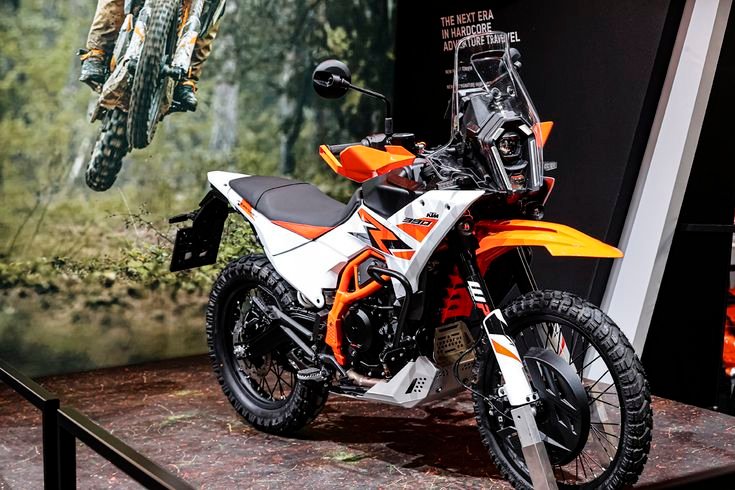
The automotive industry is undergoing a profound transformation, driven by digital advancements, changing consumer behaviors, and evolving market dynamics. Traditional car dealerships, once the primary point of contact between consumers and automakers, are facing unprecedented challenges and opportunities in the digital age. This article explores the future of car dealerships, examining how they are adapting to the digital landscape and what the future holds for this critical sector of the automotive industry.
The Evolution of Car Dealerships
Historical Context
Car dealerships have been the cornerstone of the automotive sales process for over a century. The traditional dealership model, characterized by large showrooms, extensive inventory, and face-to-face sales interactions, has long been the norm. However, this model is being disrupted by technological advancements and changing consumer preferences.
Digital Transformation
The digital revolution has fundamentally altered how consumers shop for cars. The rise of the internet, mobile technology, and digital platforms has empowered consumers with unprecedented access to information. Today, potential buyers can research vehicles, compare prices, read reviews, and even complete transactions online, all without stepping foot in a dealership.
Key Drivers of Change
Several key factors are driving the transformation of car dealerships in the digital age:
Changing Consumer Behavior
Modern consumers are increasingly comfortable with digital transactions. They expect convenience, transparency, and seamless experiences across all touchpoints. This shift in behavior is compelling dealerships to adapt their sales strategies to meet the demands of digitally savvy customers.
Technological Advancements
Advancements in technology, including artificial intelligence (AI), virtual reality (VR), augmented reality (AR), and big data analytics, are reshaping the automotive retail landscape. These technologies enable dealerships to offer personalized and immersive experiences, streamline operations, and enhance customer engagement.
Competitive Pressure
The rise of online car-buying platforms and direct-to-consumer sales models from automakers is intensifying competition. Companies like Carvana and Vroom are disrupting the traditional dealership model by offering a fully digital car-buying experience. In response, traditional dealerships must innovate to stay competitive.
The Digital Dealership Model
Online Sales Platforms
One of the most significant changes in the dealership landscape is the shift towards online sales platforms. These platforms allow consumers to browse inventory, schedule test drives, negotiate prices, and even complete financing and paperwork online. Dealerships that invest in robust online sales capabilities can reach a broader audience and provide a more convenient buying experience.
Virtual Showrooms
Virtual reality and augmented reality technologies are revolutionizing the showroom experience. Virtual showrooms allow customers to explore vehicles in a 3D environment, customize features, and take virtual test drives from the comfort of their homes. This technology enhances the buying experience and reduces the need for large physical showrooms.
Personalized Marketing
Big data and AI enable dealerships to deliver highly personalized marketing messages to potential buyers. By analyzing customer data, dealerships can understand individual preferences, predict buying behavior, and tailor marketing campaigns to target specific segments. Personalized marketing improves customer engagement and increases the likelihood of conversion.
Digital Financing and Paperwork
The digitalization of financing and paperwork processes streamlines the car-buying journey. Online tools and platforms enable customers to apply for loans, receive instant approvals, and complete necessary paperwork electronically. This reduces the time spent at the dealership and enhances the overall customer experience.
Enhancing Customer Experience
Seamless Omnichannel Experience
A key aspect of the future dealership model is providing a seamless omnichannel experience. Customers should be able to transition effortlessly between online and offline interactions. For example, a customer might start their research online, visit the dealership for a test drive, and complete the purchase online. Ensuring consistency and integration across all channels is crucial for meeting customer expectations.
Enhanced Customer Support
Customer support is evolving to meet the demands of the digital age. Dealerships are leveraging AI-powered chatbots and virtual assistants to provide instant responses to customer inquiries. These tools can handle a wide range of tasks, from answering basic questions to scheduling service appointments, enhancing customer satisfaction and efficiency.
Post-Sale Engagement
The relationship between dealerships and customers does not end with the sale. Post-sale engagement is critical for building long-term loyalty. Digital tools enable dealerships to stay connected with customers through personalized service reminders, maintenance tips, and exclusive offers. This ongoing engagement fosters customer loyalty and drives repeat business.
Challenges and Opportunities
Inventory Management
Digital transformation presents challenges and opportunities in inventory management. Online sales platforms require real-time inventory updates to ensure accuracy and avoid customer frustration. Advanced inventory management systems, powered by AI and data analytics, can help dealerships optimize stock levels, predict demand, and streamline supply chain operations.
Workforce Adaptation
The shift towards digital requires dealerships to upskill their workforce. Sales staff must become proficient in using digital tools and platforms, while also enhancing their soft skills to provide exceptional customer service. Investing in training and development programs is essential for ensuring that employees can effectively navigate the digital landscape.
Data Security and Privacy
As dealerships collect and store vast amounts of customer data, ensuring data security and privacy becomes paramount. Dealerships must comply with data protection regulations and implement robust cybersecurity measures to safeguard customer information. Building trust with customers through transparent data practices is crucial for maintaining a positive reputation.
Case Studies and Success Stories
Tesla’s Direct-to-Consumer Model
Tesla has pioneered the direct-to-consumer sales model, bypassing traditional dealerships. Tesla showrooms serve as experiential centers where customers can learn about the brand and test drive vehicles, but the actual purchase process is conducted online. This model has proven successful, demonstrating the potential of digital-first strategies in the automotive industry.
Carvana’s Online Marketplace
Carvana has disrupted the used car market with its fully digital buying experience. Customers can browse inventory, complete financing, and schedule home delivery all through the Carvana website. The company’s innovative approach, including its signature car vending machines, has resonated with consumers and driven significant growth.
BMW’s Digital Transformation
BMW has embraced digital transformation by integrating online and offline sales channels. The BMW Genius program provides customers with personalized assistance through virtual consultations, while the BMW ConnectedDrive platform offers a seamless digital experience for vehicle management and service scheduling. BMW’s focus on digital innovation has enhanced customer satisfaction and loyalty.
The Future Outlook
Continued Digital Innovation
The future of car dealerships will be characterized by continued digital innovation. Emerging technologies such as AI, blockchain, and the Internet of Things (IoT) will further transform the automotive retail landscape. Dealerships that embrace these technologies and adapt to changing consumer behaviors will be well-positioned for success.
Sustainability and Electric Vehicles
The growing focus on sustainability and the rise of electric vehicles (EVs) will shape the future of car dealerships. Dealerships will need to educate customers about EVs, provide charging infrastructure, and offer tailored service packages. Embracing sustainability initiatives and promoting eco-friendly practices will become increasingly important.
Collaborative Ecosystems
The future of car dealerships may involve greater collaboration within the automotive ecosystem. Partnerships between automakers, technology providers, and third-party platforms can enhance the customer experience and drive innovation. Collaborative ecosystems will enable dealerships to offer a wider range of services and create value for customers.
The digital age is reshaping the car dealership model, driven by changing consumer behaviors, technological advancements, and competitive pressures. To thrive in this new landscape, dealerships must embrace digital transformation, enhance customer experiences, and adapt to evolving market dynamics. The future of car dealerships will be characterized by seamless omnichannel experiences, personalized marketing, and continued innovation.
As the automotive industry continues to evolve, car dealerships that prioritize digital integration, customer-centric strategies, and sustainability will be well-positioned for success. The journey ahead is challenging but filled with opportunities for those willing to embrace change and drive the future of automotive retail.
Actionable Insights for Dealerships
Embrace Digital Platforms
Invest in robust online sales platforms that provide a seamless and convenient buying experience. Ensure that your website is user-friendly, mobile-optimized, and equipped with real-time inventory updates. Offer virtual showrooms and online test drive scheduling to enhance customer engagement.
Invest in Technology
Leverage advanced technologies such as AI, VR, AR, and big data analytics to enhance the customer experience and streamline operations. Use AI-powered chatbots for customer support, implement virtual reality for immersive vehicle exploration, and utilize data analytics to personalize marketing efforts.
Focus on Customer Experience
Prioritize delivering a seamless omnichannel experience that integrates online and offline interactions. Ensure consistency in branding, messaging, and service across all touchpoints. Enhance post-sale engagement through personalized service reminders, maintenance tips, and exclusive offers.
Train and Upskill Staff
Invest in training and development programs to upskill your workforce. Ensure that sales staff are proficient in using digital tools and platforms and enhance their soft skills to provide exceptional customer service. Foster a culture of continuous learning and adaptability.
Prioritize Data Security
Implement robust cybersecurity measures to protect customer data and comply with data protection regulations. Build trust with customers through transparent data practices and prioritize data security in all digital interactions.
Embrace Sustainability
Educate customers about electric vehicles and promote sustainability initiatives. Provide charging infrastructure and offer tailored service packages for EVs. Embrace eco-friendly practices and communicate your commitment to sustainability to build a positive brand reputation.
Foster Collaboration
Explore partnerships within the automotive ecosystem to enhance the customer experience and drive innovation. Collaborate with automakers, technology providers, and third-party platforms to offer a wider range of services and create value for customers.
By embracing these strategies, car dealerships can navigate the challenges of the digital age and position themselves for long-term success in the evolving automotive retail landscape. The future of car dealerships is digital, customer-centric, and innovative, and those who adapt to this new reality will thrive.
ALSO READ: Evolution of Car Safety Features: From ABS to ADAS





